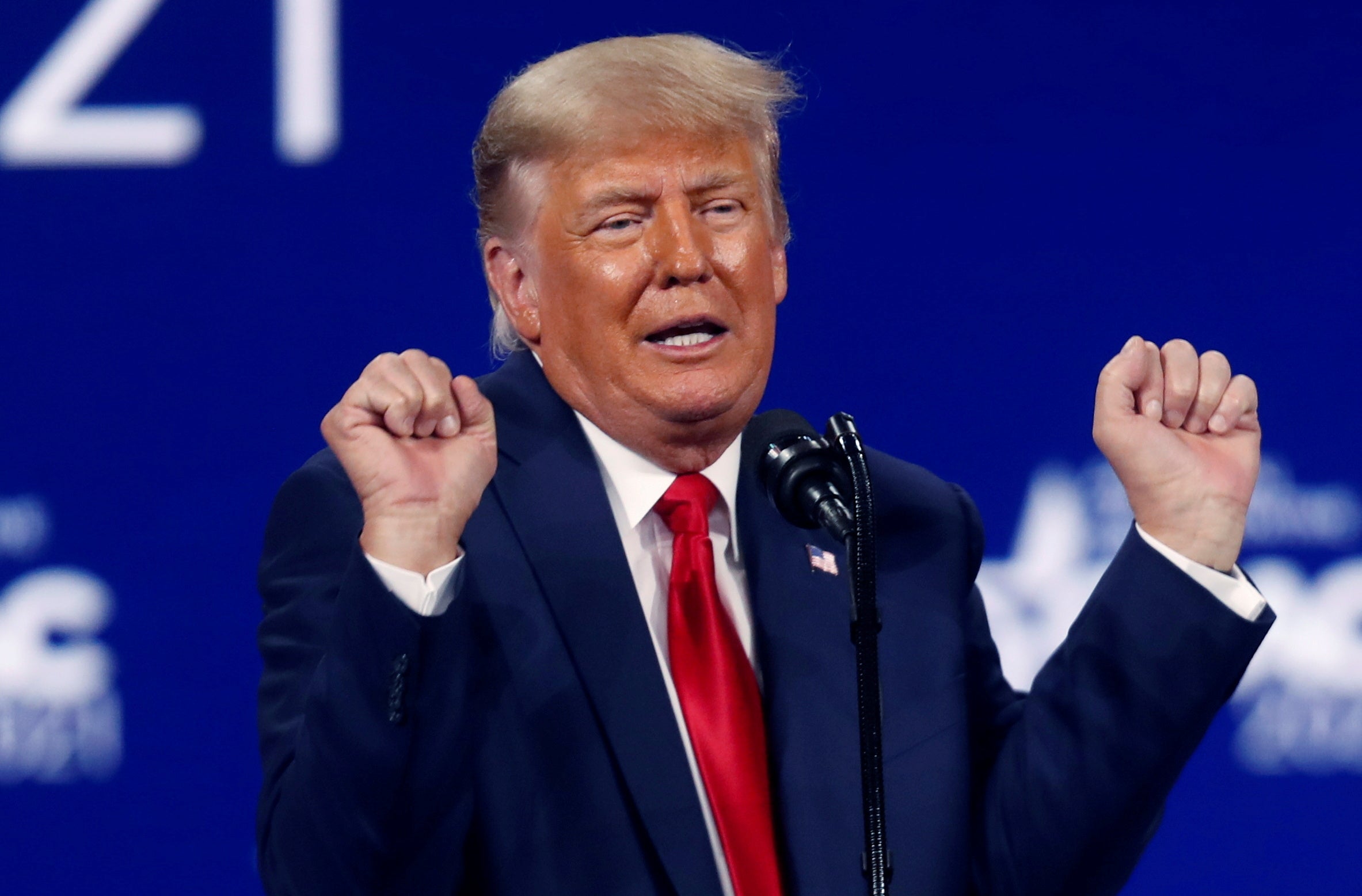Trump is back as voting rights face a non-stop assault. Can America’s democracy hold firm?
Republican-led states across the US are looking to pass restrictive voting bills as the former president makes his return to the campaign trail


Donald Trump returns to the campaign trail this weekend as the star speaker at the North Carolina Republican Party's state convention. He is expected to hold several more rallies during the summer, as he keeps his options open about another presidential run in 2024.
Trump's last public address was at the the Conservative Political Action Conference (CPAC) in Florida at the end of February, but his influence – and his wrongheaded views on how he lost the 2020 presidential election – have certainly been felt in the meantime. A recent report from the Brennan Centre for Justice – a law and policy institute based at New York University School of Law – found that at least 14 states have already enacted at least 20 laws around restricting voter rights. At least 61 bills with restrictive provisions are also said to be moving through 18 state legislatures.
Texas is the latest battleground state over voting rights, having joined Florida and Georgia. A restrictive bill was set to be passed through the state's House of Representatives at the weekend before Democratic Party legislators walked out to ensure the quorum of legislators needed for the vote couldn't be met. The legislative session ended some hours later..
However, Greg Abbott, the Republican governor of Texas, has vowed to call a special session to pass the legislation. What followed? An endorsement for re-election from Trump.
Deputy White House press secretary Karine Jean-Pierre linked the effort directly back to Trump on Tuesday, calling the Texas bill: "Part of a concerted attack on our democracy being advanced in state houses across the country on the basis of the same repeatedly disproven lies that led to the assault on our nation's Capitol on 6 January."
Democrats are trying to fight efforts to restrict voting rights at the federal level. A bill guaranteeing ballot access has passed through one chamber of Congress, the Democrat-majority House – but it has stalled in the Senate, where the Democrat/Republican split is 50-50.
In order for the bill to pass the Senate, filibuster rules – which require 60 votes to bypass – would need to be abolished or amended. Several Democratic senators, including West Virginia's Joe Manchin and Arizona's Kyrsten Sinema, would have to drop their firm opposition to to changing the rules.
President Joe Biden, who has called the Texas bill "part of an assault on democracy that we've seen far too often this year,” took a swipe at those parts of his party on Tuesday. "I hear all the folks on TV saying, 'Why doesn't Biden get this done?' Well, because Biden only has a majority of effectively four votes in the House and a tie in the Senate, with two members of the Senate who vote more with my Republican friends," Biden said.
In a sign of how seriously the president is taking the issue of voting rights, he also said that his vice president, Kamala Harris, would lead the administration's efforts on votings rights. "I'm asking Vice President Harris to help these efforts, to lead them among her many other responsibilities. With her leadership and your support, we're going to overcome again -- I promise you. It's going to take a hell of a lot of work," Biden said.
This fight over voting rights is shaping up to be a big one, with Trump's false claims about illegal votes in November's presidential election giving new emphasis to Republicans to try and reshape electoral law across the country.
Democracy in the US has faced a number of challenges in recent times, and this one has the potential to shape the political landscape for years. Is it tough enough to stand firm?
Join our commenting forum
Join thought-provoking conversations, follow other Independent readers and see their replies
Comments
Bookmark popover
Removed from bookmarks